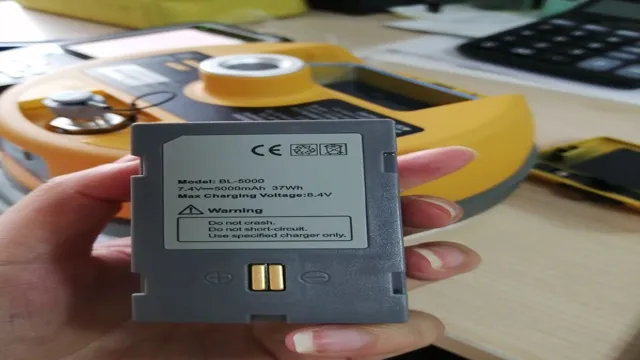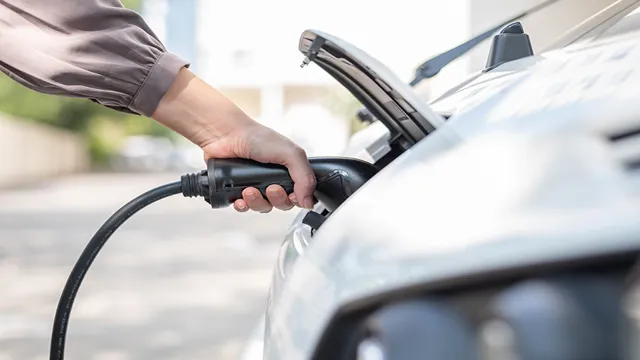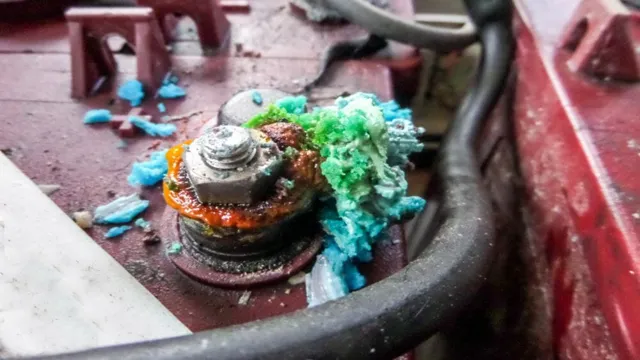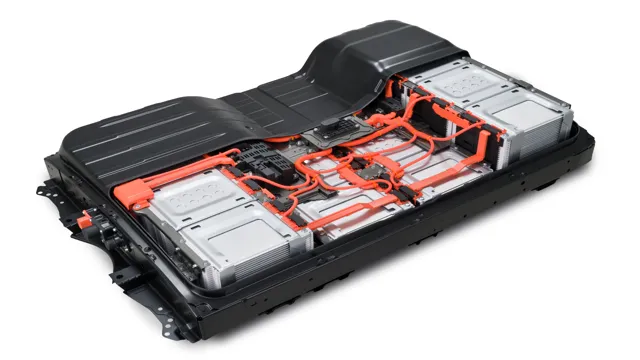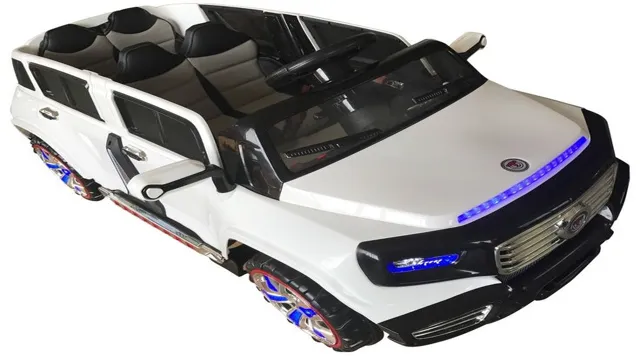Revving Up Your Ride: Comparing the Top Lithium-Ion Batteries for Electric Cars
Electric cars are rapidly gaining momentum as a sustainable solution to reduce our carbon footprint and combat the climate crisis. As these eco-friendly vehicles become increasingly popular, the demand for efficient and durable batteries to power them has also risen. Lithium-ion batteries have emerged as the frontrunners in the industry due to their energy density, long lifespan, and ability to recharge quickly.
However, there are various types of lithium-ion batteries that vary in terms of performance, cost, and safety. Hence, choosing the right one is critical for the optimal functioning and safety of an electric car. In this blog, we will compare different types of lithium-ion batteries and evaluate their suitability for electric vehicles.
From power and energy density to thermal stability and lifespan, we’ll explore the pros and cons of each battery type, helping you make an informed decision when it comes to choosing the ideal battery for your electric car.
Battery Types Overview
When it comes to electric cars, the best lithium-ion battery type comparison can be confusing. There are several battery types, each with its unique benefits and limitations. Lithium-ion batteries are the most popular battery type used in electric cars due to their high energy density, low self-discharge rate, and long lifespan.
However, within the lithium-ion category, there are different types, such as Lithium Nickel Cobalt Aluminium Oxide (NCA), Lithium Nickel Manganese Cobalt Oxide (NMC), Lithium Iron Phosphate (LFP), and Lithium Titanate Oxide (LTO). Each of these has different characteristics, such as energy density, power density, safety, and lifespan. NCA batteries offer high energy density and are commonly used in luxury electric cars.
NMC batteries provide a balance between range and battery life and are often used in mid-range electric cars. LFP batteries are commonly used in buses and trucks due to their longer lifespan and high safety. LTO batteries are known for their fast charging, long lifespan, and high power.
Ultimately, the best lithium-ion battery type for an electric car depends on the car’s needs and the driver’s preferences.
Cobalt-based Batteries
When it comes to battery types, cobalt-based batteries have become increasingly popular in recent years. Cobalt is used as a cathode material in these batteries, and they are known for their high energy density and long lifespan. However, the use of cobalt has also been a source of controversy due to the ethical concerns surrounding the mining practices in certain countries.
Alternatives, such as nickel-based batteries, are being developed to mitigate these concerns. Despite the challenges, cobalt-based batteries will likely continue to play a significant role in the development of sustainable energy storage solutions.
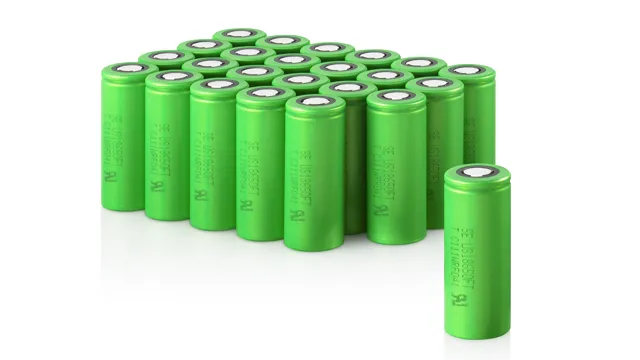
Nickel-based Batteries
When it comes to battery types, nickel-based batteries are a popular choice. These batteries are made with nickel and cadmium or nickel and metal hydride, and they have been around for quite some time. One of the biggest advantages of nickel-based batteries is that they have a very long life span, which makes them a great choice for use in devices that need to last for a long time.
They are also relatively inexpensive, which makes them a popular choice for consumer electronics. However, there are some downsides to nickel-based batteries as well. For example, they have a low energy density, which means that they don’t store as much energy as some other battery types.
Additionally, they contain toxic materials and are not as environmentally-friendly as some other options. Nevertheless, if you’re looking for a reliable and affordable battery for everyday use, a nickel-based battery could be a great choice.
Manganese-based Batteries
When it comes to batteries, there are quite a few types available, and manganese-based batteries are one option worth considering. These batteries utilize manganese dioxide as the positive electrode, zinc as the negative electrode, and an electrolyte solution that stores and releases energy when needed. Manganese-based batteries tend to be affordable and reliable, with a longer shelf life than other types of batteries, making them ideal for use in a variety of applications such as flashlights, remote controls, and toys.
While they may not have the same high energy density as lithium-ion batteries, they are still capable of providing sufficient power for many everyday needs. If you’re looking for an affordable and dependable battery solution, manganese-based batteries may be a good choice for you.
Factors to Consider
When it comes to choosing the best lithium-ion battery for your electric car, there are several factors to take into consideration. One of the most important factors is the battery’s energy density, which refers to how much energy can be stored per unit of weight or volume. A higher energy density means a longer range for your car.
Another important factor is the battery’s cycle life, or how many times it can be charged and discharged before losing capacity. This is especially important for long-term cost-effectiveness. Other factors to consider include the battery’s safety features, charging time, and overall cost.
When comparing different types of lithium-ion batteries for electric cars, it’s important to weigh these factors carefully to determine which one is the best fit for your specific needs and budget.
Energy Density
When it comes to evaluating energy sources, one factor that is often considered is energy density. This term refers to how much energy can be stored in a given amount of a substance or material. There are several factors to consider when evaluating energy density.
First and foremost is the type of energy source being used. Fossil fuels, such as coal and oil, tend to have high energy densities, while renewable sources, such as wind and solar, typically have lower densities. Other factors that can affect energy density include the purity of the substance, its state (solid, liquid, or gas), and the environmental conditions it is stored in.
Ultimately, the energy density of a substance can have a big impact on both the efficiency and cost of using that energy source. So, when considering different energy options, it’s important to take into account all of the factors that can impact its energy density.
Cycle Life
When considering the cycle life of a product, there are several factors that must be taken into account. These factors will ultimately determine how long the product will last and how frequently it can be used before losing efficiency. The first factor to consider is the material used to manufacture the product.
Certain materials are more durable than others and can withstand more wear and tear. The second factor is the frequency and intensity of use. Products that are used frequently or exposed to high levels of stress will degrade quicker than those that are used less frequently or are exposed to less stress.
Another important consideration is the maintenance and upkeep of the product. Regular cleaning and maintenance can extend the life of a product and prevent premature wear and tear. Additionally, proper storage and usage can also contribute to extended product life.
By taking these factors into account, you can better assess the cycle life of a product and make informed purchasing decisions.
Cost
When it comes to considering cost, there are several factors that businesses need to take into account. Firstly, it’s important to consider the initial cost of the product or service being purchased, but also the long-term costs associated with it. This includes maintenance costs, replacement costs, and any recurring fees.
In addition, businesses also need to think about the potential return on investment, in terms of increased efficiency, productivity, and revenue. Other factors to consider include the level of customization available, customer support, and any hidden costs that may arise. Overall, it’s important to take a holistic approach when considering cost, looking beyond just the upfront price tag to ensure that the investment is worthwhile in the long run.
By carefully considering all these factors, businesses can make more informed decisions and choose products and services that provide the best value for money.
Top Lithium-ion Battery Types for Electric Cars
When it comes to electric cars, the battery type is one of the most critical components. Lithium-ion batteries have become increasingly popular in recent years, thanks to their high energy density and long cycle life. There are several types of lithium-ion batteries available, each with its own unique advantages and disadvantages.
The most common types include Lithium Iron Phosphate (LiFePO4), Lithium Nickel Manganese Cobalt Oxide (NMC), and Lithium Cobalt Oxide (LCO). LiFePO4 batteries are known for their safety, robustness, and long cycle performance. They have a lower energy density than other lithium-ion battery types, but they are less likely to overheat or catch fire.
NMC batteries, on the other hand, offer a higher energy density than LiFePO4 batteries, which means they can store more energy in a smaller space. However, they are more prone to thermal runaway, which can cause them to catch fire. LCO batteries are typically found in consumer electronics, but they are not commonly used in electric cars.
They have the highest energy density of any lithium-ion battery type, but they are also the least safe. They have a tendency to overheat and catch fire, which is why automakers tend to avoid them. In the end, there is no one-size-fits-all solution when it comes to choosing the best lithium-ion battery for your electric car.
It depends on individual priorities such as safety, energy density, and cycle life. Therefore, automakers carefully select the appropriate battery type based on the specific characteristics of the vehicle they are manufacturing. As a result, the electric car battery market continues to evolve, and we can expect to see even more innovations in the years to come.
Tesla’s NCA Batteries
One of the top lithium-ion battery types for electric cars is the NCA battery, which is commonly used in Tesla vehicles. NCA stands for nickel-cobalt-aluminum, which are the key materials used in the battery’s cathode. These batteries are known for their high energy density, which allows them to hold more power in a smaller size than other types of lithium-ion batteries.
This means that electric cars with NCA batteries can drive further on a single charge. Additionally, NCA batteries have a long lifespan and can withstand high temperatures without degradation. However, they can be more expensive than other battery types, and cobalt sourcing has led to ethical concerns in the past.
Despite this, NCA batteries remain a popular choice for electric cars, especially for those who prioritize performance and range.
BYD’s LFP Batteries
When it comes to batteries for electric cars, there are several types to choose from. One of the top contenders is BYD’s LFP batteries. These batteries use lithium iron phosphate technology, which offers several advantages over other types.
For one, they are more affordable than lithium-ion batteries made with cobalt or nickel. They are also more stable and less prone to overheating, which makes them safer. Additionally, LFP batteries have a longer lifespan, with up to 4,000 cycles or more.
This means drivers can go further and longer before needing to replace their battery. Overall, BYD’s LFP batteries are a high-quality and reliable option for those looking to switch to electric vehicles.
LG Chem’s NMC Batteries
Electric cars are picking up speed, and it’s no surprise that lithium-ion batteries are riding along. These batteries are gaining recognition for their energy-rich properties, long shelf life, and rechargeability. Among the various types of lithium-ion batteries, NMC (nickel-manganese-cobalt oxide) is the most commonly used for electric vehicles.
LG Chem’s NMC batteries, for instance, provide higher energy density and longer driving ranges. The distinguishing feature of NMC batteries is their stability, which means that they can sustain high temperatures without losing their integrity. Furthermore, NMC batteries provide better performance at a reasonable cost, making them a worthwhile investment for electric vehicles.
In conclusion, NMC batteries present an excellent opportunity for manufacturers to produce sustainable electric cars without sacrificing performance.
Panasonic’s NCA Batteries
Lithium-ion batteries are the go-to power source for electric vehicles, providing high energy density and long-lasting charge capabilities. Panasonic’s NCA batteries are one of the top types of lithium-ion batteries used in the automotive industry. These batteries contain nickel, cobalt, and aluminum, which provide a high energy density and high power output.
The NCA batteries are also known for their temperature stability, making them a reliable source of power even in extreme temperatures. When it comes to electric cars, the type of lithium-ion battery used can significantly impact performance and range. Panasonic’s NCA batteries offer a balance of power, energy density, and temperature stability, making them a favored choice by many automakers.
With the increasing demand for electric vehicles, advances in battery technology are constantly being made. As a result, we can expect to see even more efficient and powerful lithium-ion batteries being developed in the future.
Conclusion: Which Battery to Choose?
After careful comparison and analysis, it’s clear that the winner of the best lithium-ion battery type for electric cars is…
wait for it…
the one that works best for you! Each of the top producers has its own strengths and weaknesses, and ultimately it’s up to the individual driver to weigh those factors against their own needs and preferences. So if you’re in the market for an electric car, do your research, weigh your options, and choose the battery that will keep you powered up and cruising in style!”
FAQs
What are the advantages of lithium-ion batteries over other types for electric cars?
Lithium-ion batteries are lighter, have a higher energy density, and can hold their charge for longer periods of time compared to other battery types commonly used in electric cars.
How does the cost of lithium-ion batteries compare to other types for electric cars?
While the initial cost of lithium-ion batteries is higher than some other types, their longer lifespan and higher energy density make them a more cost-effective choice in the long run.
What are some factors that can affect the performance and longevity of lithium-ion batteries in electric cars?
Factors such as temperature, depth of discharge, and charging habits can affect the performance and lifespan of lithium-ion batteries in electric cars.
How do the different brands of lithium-ion batteries used in electric cars compare in terms of performance and reliability?
While there are many different brands of lithium-ion batteries used in electric cars, some of the most popular ones include Tesla, LG Chem, and Panasonic. These batteries are generally known for their high performance and reliability, but there may be some differences between brands in terms of specific features and capabilities.
